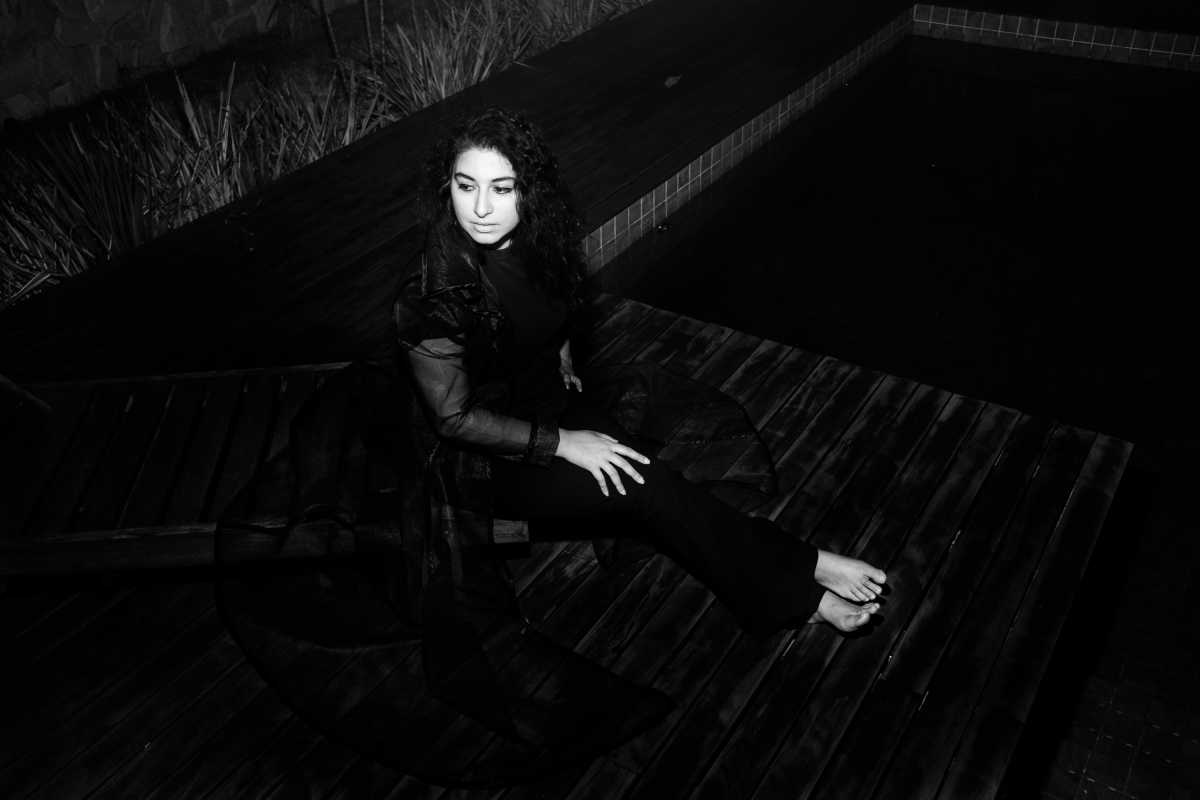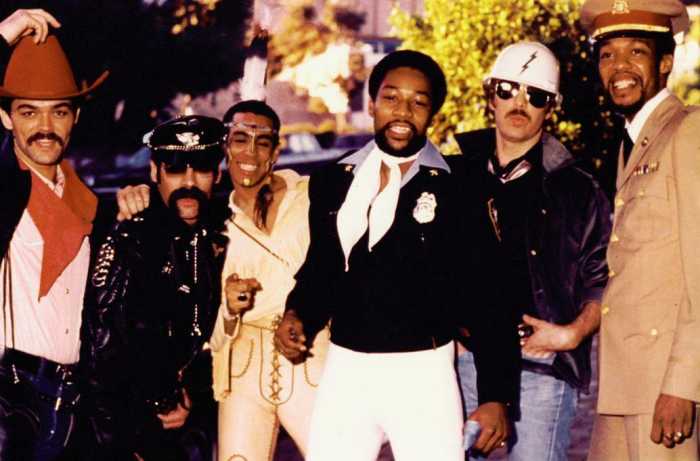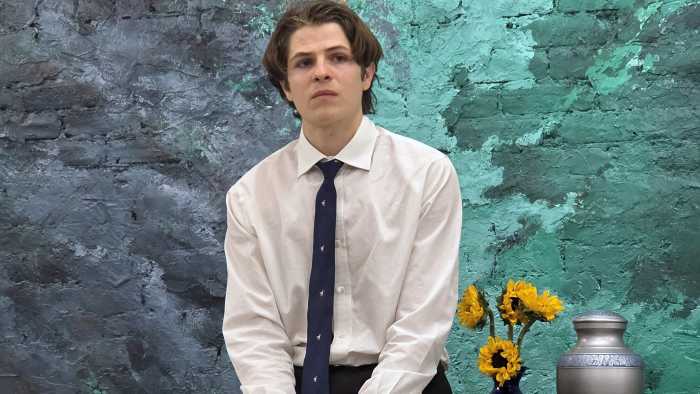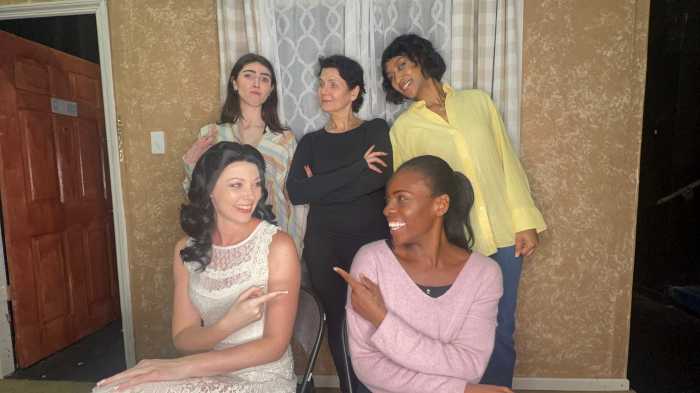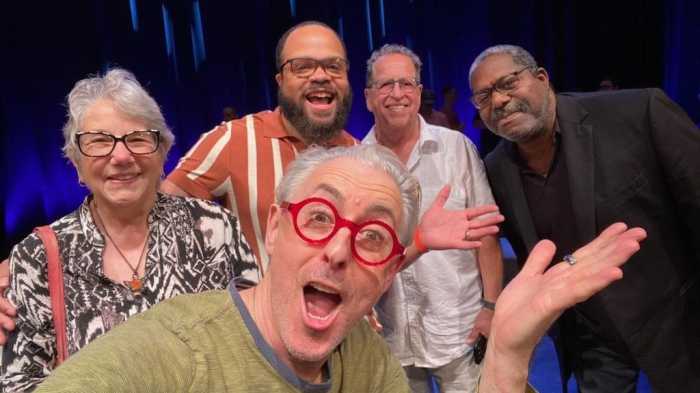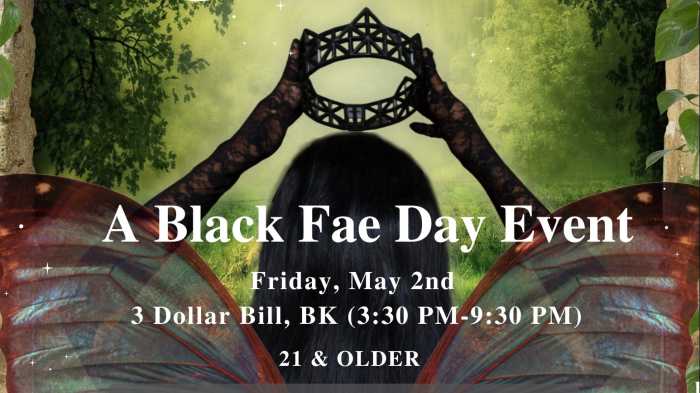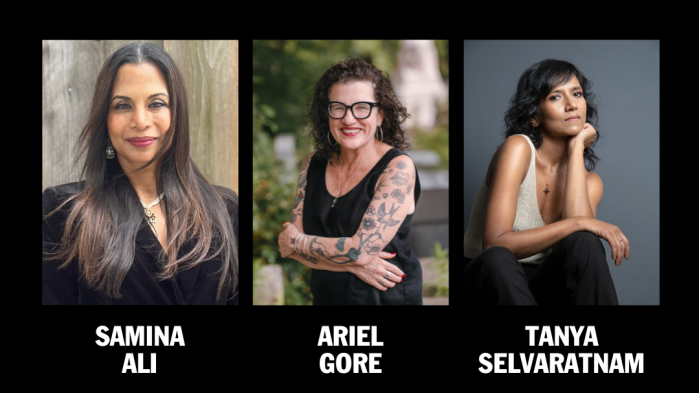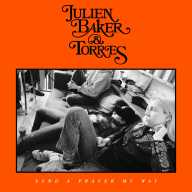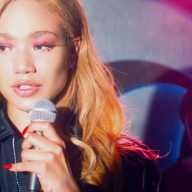Gay City News’ June music roundup examines the latest albums by queer Pakistani-American jazz-folk singer Arooj Aftab and indie pop duo Pride Month Barbie.
Arooj Aftab | “Night Reign” | Verve Records
At this moment, Arooj Aftab plays to a substantial worldwide audience that is unfamiliar with the traditions and reference points she adopts. (For instance, her song title “Raat Ki Rani” comes from a fragrant, overpoweringly sweet flower that blossoms during summer nights in South Asia.) She brings together the South Asian tradition of ghazals, including lyrics sourced from Urdu poetry, with American vocal jazz. The seeds of her current sound were already present in her 2015 debut album “Bird Under Water, in a more stark form. The 2018 “Silent Islands” ventured into ambient/New Age, but her third album “Vulture Prince” proved to be a breakthrough, leading to a Grammy Award for Best Global Music Performance in 2022, and a major label deal. Her first solo release for Verve, “Night Reign,” is moody but relaxed.
Much of Aftab’s success undoubtedly stems from how well her music fits into a “Chill Vibes” playlist. It plays into the triumph of mood over genre. (Even Americans who’ve never heard the word “ghazal” are likely to find her Billie Holiday- and Sade-influenced vocals accessible.) But the perception that it’s easy listening, meant to dissolve into the background, is a superficial one. The textures of her more experimental songs, like “Ovid’s Metamoprhoses,” mold her voice and layers of synthesizer together into slowly erupting crescendos.
On “Night Reign,” she collaborates with vibraphonist Joel Ross and pianist Vijay Iyer, among others. Queer spoken word artist Moor Mother is uncommonly subdued on “Booh Na,” as Aftab weaves her singing on top of Moor Mother’s poetry. “Na Gul” begins with spare piano and vocals. Then, Maeve Gilchrist’s harp joins in between the first and second verses, playing a solo around the 4-minute mark, followed by a trumpet. The instrumentation remains as minimal as possible, even if it changes from song to song; Aftab performs without a drum kit, and only three songs on “Night Reign” employ percussion. “Autumn Leaves” leaves the melody to Aftab’s voice and lets bass support her, fleshing out the tune while providing percussion alongside rimshots. Midway through, an electric piano takes over for Aftab.
Aftab has laid out a story behind “Night Reign”: after the grief which inspired “Vulture Prince,” she’s exploring a more upbeat, extroverted mood. The songs are meant to describe a woman’s nocturnal pursuits. The feelings of the actual music are a bit more elusive, but her voice pushes against the boundaries of her songs’ melodies while retaining an essential coolness. Even in five or six minutes, her songs lay out a journey. “Whiskey” starts off with percussionist Jamie Haddad coaxing delicate noise out of cymbals, before Aftab starts singing. When she sings “we’ll fade into the night on wings of your perfume,” the song moves into a new dimension. Love as intoxication is an old idea, but Aftab sounds excited without threatening to burst out of control.
Pride Month Barbie | “All the Girls In the Room Say ‘Sorry’” | Get Better Records | June 15th

It’s very amusing that googling Pride Month Barbie gets a mixture of articles about the band and actual examples of Mattel’s rainbow capitalism side by side. The band summons the ghosts of 2000s pop, with something getting warped irreparably during the séance. The group draws on Robyn, the late trans producer SOPHIE and “Blackout”-era Britney Spears, while pushing the envelope.
The most obvious method is the use of singer Josephine Shetty’s voice in a low murmur. Often drenched in Autotune, she manipulates her voice, singing so softly you could mistake her for a synthesizer patch. Although “I Don’t Wanna” could be mistaken for an instrumental, vocals are still a major part of it. Shetty’s doesn’t treat her voice like a delivery system for Pride Month Barbie’s lyrics. The darkness is apparent without being able to catch every word. Almost nine minutes long, the uptempo “Fun” takes its time getting to her singing “just a little bit of fun anyway.” Racing drums and a vocal loop turn the song into a jittery, pulsating roller coaster ride. “Scrapes” is the comedown after it.
Shetty says that Pride Month Barbie’s music comments on the screwed-up attitudes often expressed in pop lyrics. “Over It,” inspired by Lindsay Lohan, is meant to be “so toxic that it’s problematic.” It’s about a person clinging to a relationship after their ex has moved on: “there’s so much anger left inside/I’m not really over it.” “Obsession” finds its narrator pursuing a person who may well hate her. Nevertheless, she believes that if she pushes hard enough, she can transform the emotion to love, unconvincingly circling back to the line “I’m the one who’s free.” Pride Month Barbie’s choruses bounce around their songs like the center of racing thoughts.
The candy coating of the band’s music is deceptive. Less abrasive than hyperpop or early PC Music, their hooks still bite. The video for “Effulgent,” where the duo lounge about their apartment, dancing and eating a disgusting arrangement of ketchup, shrimp and Jello while wearing monster masks, is an astute metaphor for their affectionate but critical attitude to pop. Something always sounds off, and returning to the banality of everyday life is harder than it looks.

